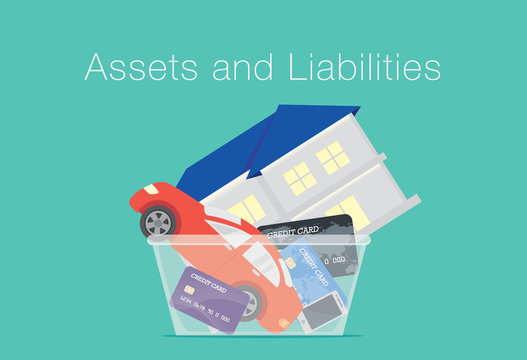Last updated Apr. 3, 2023 by Favour Chinaza
While Gen Zers may get their investing information from Twitter, Reddit, and TikTok these days, the value of good old-fashioned investing books for Stock Market Beginners remains undefeated.
Many of these books were written with retail investors in mind, with step-by-step instructions on many topics that new investors find intimidating, such as:
- how to screen funds
- build a portfolio, and
- maximize tax efficiency.
Other books provide a jargon-free overview of how capital markets work and beginner-friendly breakdowns of asset classes such as stocks, bonds, and alternative investments.
Most of these books were also written by prominent investment industry figures who had a reputation for looking out for the interests of retail investors.
These recommendations for the finest books for young investors are useful whether you’re just out of college or a high school student who has just recognized the importance of investing.
Why Get Stock Market Books?
The best investing books can help people understand the stock market and the various types of investments that are available to them.
These are some of the recommended investment books that can also help people understand the psychology of investing and the different types of influences that major market forces have.
There are several types of investment books and financial management books to look for, including the following:
- Books on investing for beginners
- Women’s Investment Books
- Books on financial management
- Books on real estate investing
- Books on stock investing
- Books on retirement planning.
Finding the best investing books can assist you in developing your own investment strategy.
The best investing books enable investors of all levels, from beginners to experts, to learn from authorities and people who have amassed wealth using their own strategies.
We’ve compiled a list of some of the best investing books, divided into various categories, that you should read this year.
Getting stock market books is very important. Reading includes information on all of the standard investment vehicles, such as:
- stocks and bonds,
- money markets,
- real estate investment, and
- tangible assets and ideas on how retirement should affect your portfolio.
If you want to save for retirement or just make some additional money on the side, investing right when you start getting a paycheck is a terrific idea.
If you’re just getting started in the world of finance, it’s in your best interest to educate yourself on how to invest in stocks, the fundamentals of investing and the many avenues open to you.
Your investment portfolio might increase in tandem with your income.
Getting the Right Investment Resources
The first step is to getting it right with stock investing is finding credible investing education resources like books, as they is critical to your success as an investor.
The issue with finding credible resources is that there is no formal Rule #1 education. This means that the entry barrier for “educators” is low—anyone, including Ivy League professors, can teach about “investing.”
As a result, there is a great deal of misinformation out there. In fact, most of what is available is misinformation. According to Charlie Munger, 95% of people in the financial world make witch doctors look good.
Good Read: 40 Best FIRE (Financial Independence, Retire Early) Blogs
Best Investing Books for Stock Market Beginners
Here are the top eleven financial books for beginners, without further ado:
1. “The Intelligent Investor” by Benjamin Graham
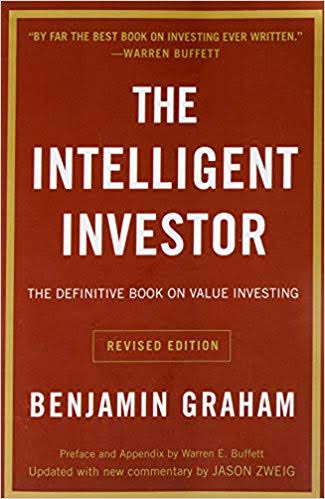
“The Intelligent Investor” by Benjamin Graham should be the only financial book you have ever read. Graham is known as the “Godfather of Value Investing” for a reason.
The Intelligent Investor is perhaps the most important financial book ever written, and Benjamin Graham was most likely the influential investor of the 20th century.
Graham’s brand of fundamental analysis focuses on five factors:
- long-term growth prospects,
- management quality
- capital structure
- dividend record
- and dividend rate is still used today.
Aside from financial ratios, Graham devotes significant time to analyzing cognitive biases.
His most famous allegory is “Mr. Market,” which illustrates how true value investors should not succumb to the market’s often irrational stock valuations.
The Intelligent Investor is the holy book for value investors. Keep this one next to your bed.
2. “A Random Walk Down Wall Street” by Burton Gordon Malkiel
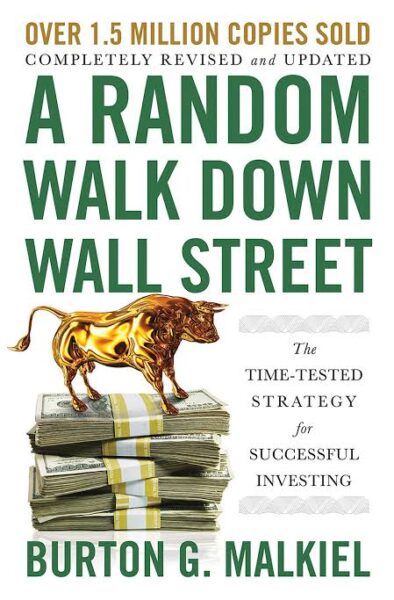
A book by a Princeton economist is bound to turn heads, and if it is the celebrated Burton Malkiel, Gen Zers who are beginner stock market investors can’t help but want to get their hands on a copy.
In 1973, he wrote this book. It is a well-known resource for all newcomers, novices, and entrepreneurs. Furthermore, it is written in a straightforward and engaging style.
This book encapsulates the concept of indexing in the volatile and risky world of the stock market.
It gives clear advice and perfectly combines theoretical and practical aspects of stock market funds. In addition, Malkiel examines Wall Street history through a speculative lens, making each bubble extremely insightful.
The author’s approach to indexing and adhering to the efficient market hypothesis is correct. However, he backs up his claims with statistics and reluctantly acknowledges the stock market’s outliers.
Malkiel’s approach is mediocre in that he does not bombard the reader with complicated terms to catch the reader off guard.
However, but rather is lucid and only about technology to help both the seasoned and the newbie.
The eleventh edition of the book includes new material on exchange-traded funds and emerging market investment opportunities, a brand-new chapter on “smart beta” funds, and the investment management industry’s newest marketing gimmick.
Also, a new supplement that delves into the increasingly complex world of derivatives.
This book is a great source of fundamentals and is recommended for anyone looking for financial advice
3. “You Can Be a Stock Market Genius” by Joel Greenblatt
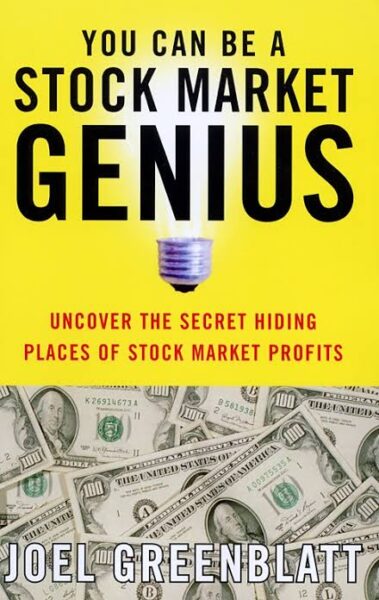
This book was written by Joel Greenblatt, a well-known value investor who graduated from Columbia University’s value investing program. The same institution launched the careers of Benjamin Graham and Warren Buffett.
Greenblatt breaks down the formula used by famous value investors into simpler, easier-to-follow instructions for the layperson in “You Can Be a Stock Market Genius.“
This book’s advice and case studies will be useful to any aspiring value investor, as it provides a detailed breakdown of how investors can identify undervalued stocks.
Greenblatt also educates readers on various types of corporate events, such as mergers, spinoffs, and restructurings, and offers concise advice on how to profit from these events.
4. “Common Stocks And Uncommon Profits” by Philip Fisher
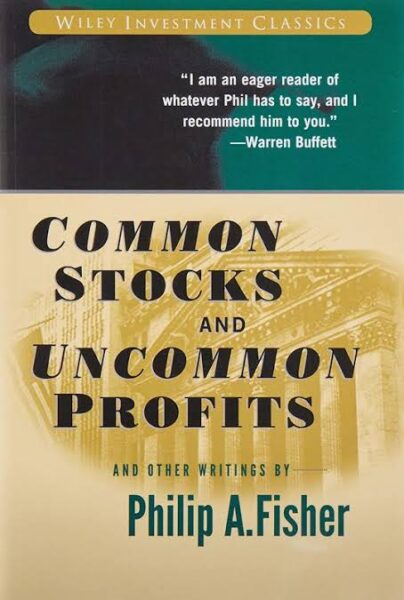
Philip Fisher is regarded as one of the most powerful and beginner investors of all time. “Common Stocks and Uncommon Profits” are widely regarded as the definitive book on growth investing, with Warren Buffett praising it.
He called it a “very, very good book.” “in his letter to Berkshire Hathaway shareholders in 2018.
Philip Fisher was known for holding a concentrated portfolio of companies he expected to outperform the market in terms of earnings growth.
Claiming that the best time to sell a stock is “almost never,” “Fisher famously held Motorola stock from 1955 until his death in 2004.
Fisher describes his approach to qualitatively analyzing a business in the book, which he calls the “Scuttlebutt” method.
The “Scuttlebutt” method determines the merits of an investment by speaking with people who have unique knowledge of the company.
This could include company executives, employees, former employees, industry experts, and even competitors.
Fisher goes over 15 things to look for in every stock, when to sell, and five “don’ts” for every investor. This is my personal favorite because it is so different from the vast majority of investing books.
Philip Fisher was a growth investing pioneer, and “Common Stocks And Uncommon Profits” should be on every investor’s bookshelf as a must-read regardless of their investment philosophy or style.
5. “All About Asset Allocation” by Richard Ferri
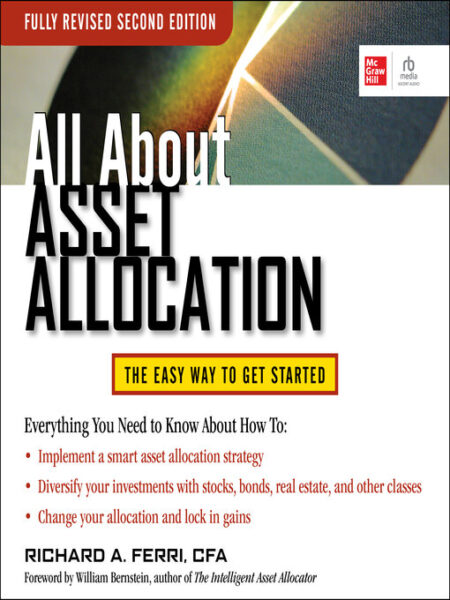
Rick Ferri is a former fighter pilot in the United States Marine Corps, a stockbroker, and a college professor.
He has been featured in Forbes, the Wall Street Journal, and other financial publications. He now works as a fee-only financial consultant with the designation of chartered financial analyst, or CFA.
Ferri is well-known in the passive investment community for his “Core-4” model portfolios, which provide sensible asset allocation guidelines to beginning investors.
Ferri outlines the principles behind different asset classes, the best ways to mix and match them, how to manage your asset allocation over time, and how to select funds in “All About Asset Allocation.”
This book provides practical advice for investors putting together a portfolio.
6. “Your Essential Guide to Sustainable Investing” by Larry Swedroe
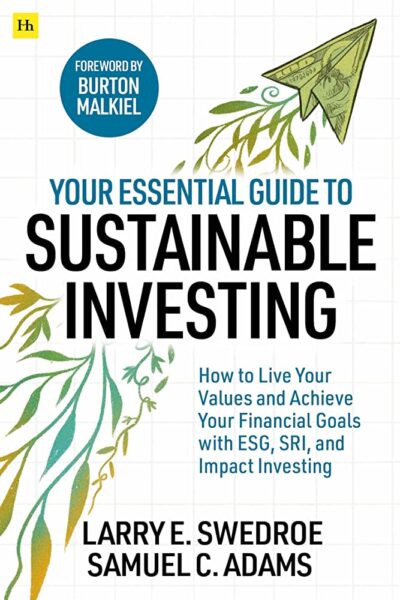
“Your Essential Guide to Sustainable Investing” is an excellent how-to guide for new investors who want to incorporate environmental, social, and governance, or ESG, considerations into their investment portfolio and strategy.
Author Larry Swedroe explains step-by-step how investors can decipher the various metrics and ratings of ESG investment products in this book.
He also provides academic research on how sustainable investing has performed and outlines how investors can truly measure the social impact of their investments.
With so many ESG fund options available today, this book can help beginners simplify their decision-making.
7. “Common Sense on Mutual Funds: New Imperatives for the Intelligent Investor” by John Bogle
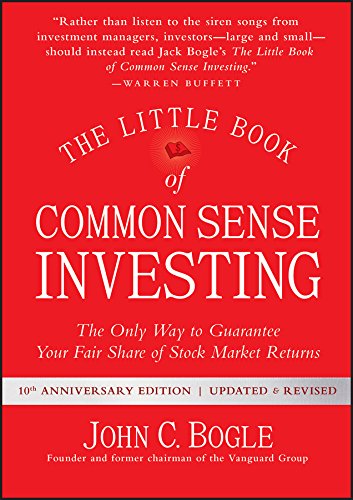
Although exchange-traded funds, or ETFs, are popular these days, there is still value in investing in traditional mutual funds. Another Bogle book new mutual fund investors should read is “Common Sense on Mutual Funds.”
Bogle uses historical evidence again to demonstrate how a low-cost, diversified portfolio of simple index funds outperforms the majority of active funds, stock pickers, and day traders.
Bogle also goes into great detail about the complexities of mutual fund investing, highlighting industry trends, tax considerations, and expense ratios.
This book may be especially useful for investors who are trying to pick and choose investments.
8. “The Essays of Warren Buffett: Lessons for Corporate America” by Lawrence A. Cunningham“
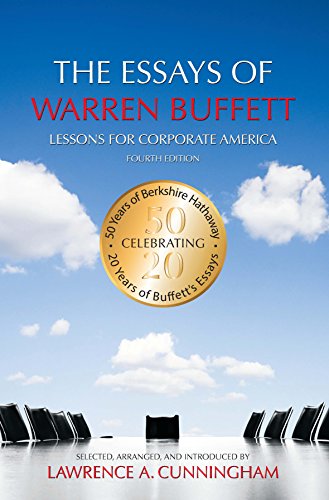
The “Essays of Warren Buffett” are the value investor’s equivalent of the New Testament if “The Intelligent Investor” is the value investor’s bible.
Warren Buffett has been publishing writings on business and investment for 50 years. His brilliance, approachable charm, and concise writing make him one of the best instructors and investors to have ever lived.
Buffett writes an annual letter to Berkshire Hathaway shareholders each year, all of which are published on the company’s website for anyone to read.
Buffett writes in a straightforward style that is approachable to investors of all skill levels, and he is frequently very funny. “The Essays of Warren Buffett” compiles Buffett’s essays into a logical, cohesive book.
Many of these pieces are available for free online, but Lawrence Cunningham’s collection, The Essays of Warren Buffett, gathers them all under one roof.
9. “Choose Stocks Wisely” by Dr. Paul W. Allen
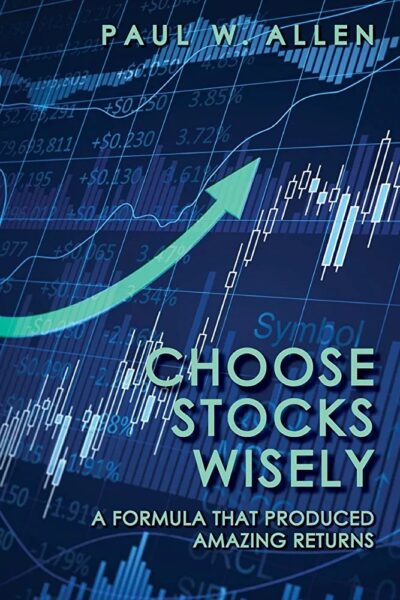
“Choose Stocks Wisely” is an excellent book for anyone who understands the stock market but wants to learn how to find high-quality stocks to invest in.
It’s also great for anyone who wants to learn more about what goes into determining a stock’s value.
This book gives the reader the tools to identify quality companies and quality stocks at an undervalued price by teaching them how to analyze a company’s fundamentals (specifically the balance sheet).
The author walks the reader through the process of locating potentially undervalued companies using free online resources.
Then walks you through the process of analyzing any company’s balance sheet so that you can easily determine the value and potential of any stock.
“Choose Stocks Wisely” removes the emotion and speculation from investing and instead teaches the reader how to analyze stocks purely analytically.
Even if you do not implement all the strategies outlined in this book, you will undoubtedly learn something that will benefit your investing career and strategy.
At the very least, you will learn how to properly analyze any balance sheet, making you a wiser and more educated investor.
10. The Definitive Guide to Financial Market Returns & Long-Term Investment Strategies: Stocks for the Long Run by Jeremy Siegel
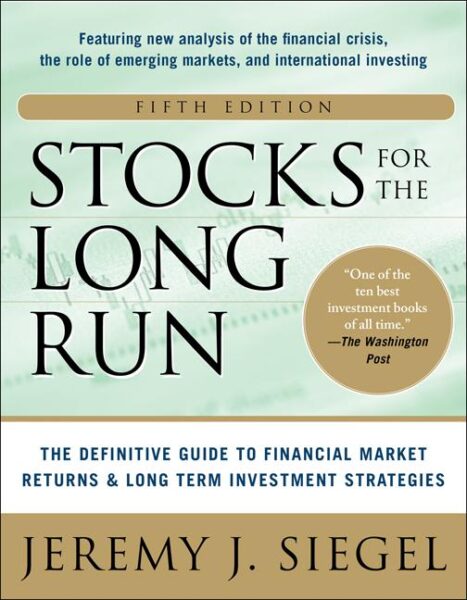
Jeremy Siegel, who has been a professor at Wharton for 45 years, is known as the “Wizard of Wharton.” His book Stocks for the Long Run is referred to as “the buy and hold Bible” for investing.
The book makes a strong case that stocks are the safest investment over the long term if inflation is considered, demonstrating why most people should be long-term, passive investors in the stock market.
11. “The Disciplined Trader” by Mark Douglas
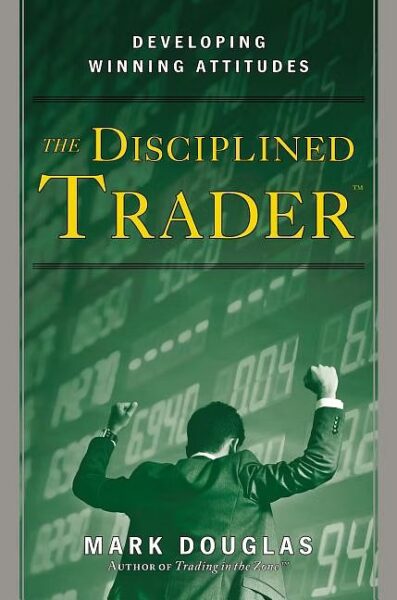
Mark Douglas’s 1990 book “The Disciplined Trader: Developing Winning Attitudes” discusses trading psychology, specifically the mental discipline required to be a successful trader.
Although many other books on the subject have since been published, Douglas’ book is still considered a “must-read” classic text on trading psychology.
One of the book’s strengths is that it is a very clear and easy read despite addressing a subject that may appear dauntingly complex to some.
Douglas does an excellent job of describing the fundamental mindset and attitudes required of traders. Douglas wrote another best-selling book on trading psychology, “Trading in the Zone.”
Best Books for Investing
“Wall Street Kitchen”: The Recipe Behind a Housewife’s 1000% Stock Return by Victor Chiu
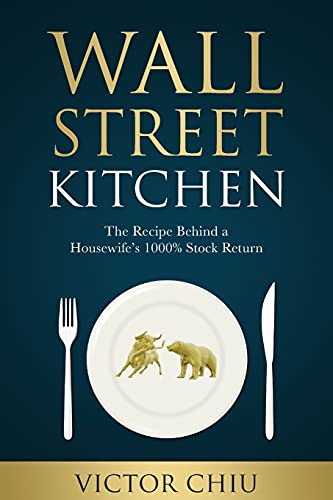
This book is based on the author’s mother’s lessons on stock market success.
“Wall Street Kitchen” is a self-help investing book that explains the complexities of the stock market in simple terms, making it truly accessible to beginners.
Wall Street Kitchen parallels his mother’s cooking love and investment philosophy.
The storytelling perspective and approach are uncommon in a self-help finance book, making for a unique and compelling reading experience.
If you’re doing work-from-home mom jobs, this is a good book to learn if you are becoming interested in the stock market.
“The Bogleheads'” “Guide to Retirement Planning” by Taylor Larimore, Mel Lindauer, Richard Ferri, and Laura Dogu

“The Bogleheads’ Guide to Retirement Planning” is another Ferri book that combines the best parts of John Bogle’s passive investment philosophy with sound personal finance and retirement planning strategies.
If you don’t know the steps to take 10 years before retirement, maybe, you should start with this book.
Successful investing entails more than just building a high-performing investment portfolio; this book lays out the critical next steps.
Ferri’s book delves into the complexities of various retirement plans, how taxes affect retirees, examples of withdrawal strategies, and even disability and estate planning.
The book also includes numerous real-life anecdotes contributed by approximately 40 Boglehead investors.
“How to Make Money in Stocks” by William O’Neil
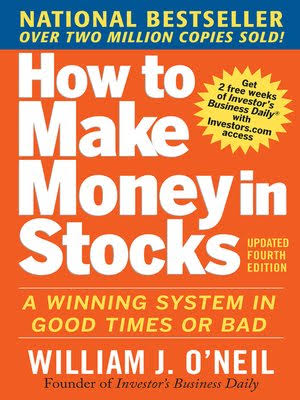
This book has little to say because its sales and performance speak for themselves.
“How to Make Money in Stocks“, a national best-seller, is a seven-step guide for minimizing risk and maximizing gains to build wealth for investors.
In addition, the book contains strategies for identifying winning stocks before making large price gains.
It also offers advice on how to make better investments in stocks, mutual funds, the best real estate REITs to get, and ETFs to maximize profits. The best part, however, is that the book will help you decipher the twenty-one mistakes that every investor makes.
The book is a magnum opus that contains in-depth information about the stock market.
Neil’s CANSLIM strategy, which enabled him to become a multi-millionaire, is a time-tested strategy that demonstrates how the equity (stock) market(s) works. This is for the passive, minority, outside investor.
Neil’s 80/20 approach, which states that an investor can achieve 80% success with 20% effort, is based on the concept of proprietary metrics and tools.
The book is a classic, and its trading advice is still applicable today. This pocket pinch is essential for investors who want to enjoy a lot of wealth.
Jack Schwager’s “Market Wizards”
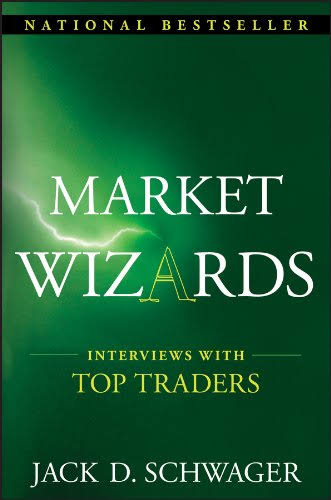
Jack Schwager has written two very popular trading books: “Market Wizards” and “The New Market Wizards.“
Both books feature interviews with some of the most successful traders of the last half-century, including billionaire Paul Tudor Jones, founder of Tudor Investment Corporation.
The best way to learn any craft or occupation is to be mentored by those who have already succeeded in the field.
Schwager’s books allow readers to gain mentor-like advice from highly successful traders.
The interviews provide interesting biographical information about the interviewees and exposure to a wide range of investing strategies.
“A Beginner’s Guide to the Stock Market” by Mathew R. Kratter
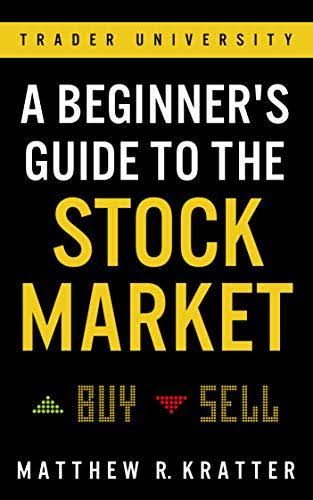
This book is a great resource for novice young investors to learn the ropes of the stock market. Matthew R. Kratter explains how to study stocks to locate ones that should do well in the short term and the long term, and he explains the many kinds of stocks and how they function.
The common pitfalls that novice investors face and how to avoid them are important themes throughout this book.
The stock market investment tactics and methods discussed in “A Beginner’s Guide to the Stock Market” make it a fantastic choice as a first book on the topic.
The Top Option for Hands-Free Property Investment
“Investing in REITs” by Ralph L. Block
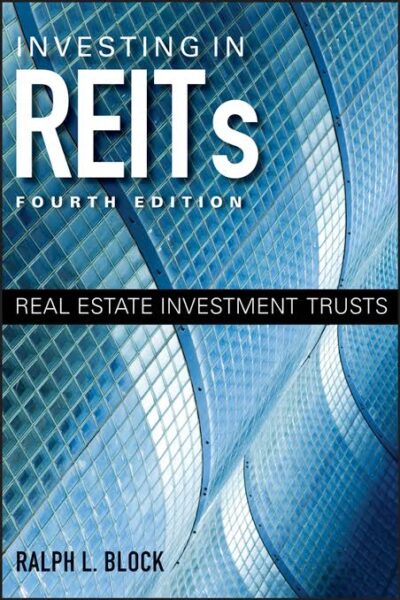
If a young investor thinks that investing in real estate means becoming a landlord or property manager, they may ignore the benefits of passive real estate investment.
The latest iteration of “Investing in REITs” explains how first-time and young investors may use real estate investment trusts (REITs) to diversify their holdings and take advantage of market gains.
This book, authored by the late Ralph L. Block, an experienced counselor on REITs for 40 years, provides a deep dive into REITs, the history of this investment type, and how to start implementing them into your portfolio.
A National Association of Real Estate Investment Trusts member, Block was honored with their 2004 Industry Achievement Award (NAREIT).
Best Book For Stock Picking
“A Random Walk Down Wall Street”: The Time-Tested Strategy for Successful Investing
Investors who are still debating whether or not to try their hand at stock picking should read “A Random Walk Down Wall Street” to understand the many challenges involved.
This book, written by Princeton University economist Burton Gordon Malkiel, is credited with popularizing the “random walk” hypothesis.
Malkiel’s book outlines the futility of attempting to outperform the market and predict stock prices, citing academic research demonstrating technical and fundamental analysis flaws.
He concludes readers should avoid stock picking and actively manage mutual funds to match the market’s long-term average return.
Clever Girl Finance: Learn How Investing Works, Grow Your Money by Bola Sukunbi’s
Women are one of the groups the financial industry fails to serve, and this book seeks to address that issue by being straightforward and understandable.
It avoids trying to impress readers with complex topics, instead focusing on what you need to know to get started investing.
You’ll learn about the stock market and key concepts like inflation, compound interest, and the rule of 72.
Once you’ve mastered the fundamentals, the book focuses on how to conduct investment research and where to make purchases when you’re ready. It’s an excellent option for recent graduates and those just starting out in their careers.
There is a Caveat to Stock Market Investing Books
Any book, no matter who wrote it, should not be considered sacred. Unfortunately, no author has yet distilled a winning investment strategy into an easy-to-replicate formula.
Books can help you develop your own personal investing guidelines, but they are not a quick way to wealth.
Another thing to keep in mind is that many of the best investing books are often written for a US audience.
While the key philosophy and strategy sections should be easily translatable, UK readers will have to deal with dollar signs as well as some unfamiliar company names and terms.
Good Read: The 6 Best Paper Trading Apps?
Bottom Line
The more you read, the more you will understand. But, regarding the variety of quality investing books available, this list is just the tip of the iceberg.
Following the fundamentals, consider purchasing a more topic-specific book like Michael Lewis’s “Liar’s Poker.” Next, pick up a book about a historical financial event, such as John Kenneth Galbraith’s “The Great Crash 1929.”
As a result, many people are interested in joining the recent populist wave on the stock market but don’t know where to start.
Even when things are going well, the stock market can be murky, full of arcane terminology and seemingly random ups and downs. Those without investing knowledge might find helpful introductions in several publications now available.
Frequently Asked Questions
Q: What should I look for in the stock market book for beginner investors?
It is critical to look for an investing book written clearly and understandably. Look for books that use examples to illustrate key points and explain complex concepts in simple terms. It’s also a good idea to find a book that gives a comprehensive overview of various investment strategies and types of investments rather than focusing on just one.
Q: Can Stock market investment books help me make money quickly?
Investing is a long-term strategy that must be approached with patience and discipline. While investing can help you make a lot of money, it can also cause you to lose money if you make rash or ill-informed decisions. The books on this list are intended to help you make informed, strategic decisions but do not guarantee quick profits. The key to investing success is education, staying informed, and making sound decisions based on a well-thought-out plan.
Q: Do I need much money to start investing in the stock market?
No, you do not need much money to begin investing. Many brokers provide investment accounts with low minimum deposit requirements. In addition, investment options like mutual funds and exchange-traded funds (ETFs) allow you to invest in a diverse portfolio of assets with a small amount of money. The important thing is to begin investing as soon as possible and to continue contributing to your investment portfolio over time.
Q: What is the best stock book for beginners?
- The Little Book of Common Sense Investing by Jack Bogle
- A Random Walk Down Wall Street by Burton G. Malkiel
- The Intelligent Investor by Benjamin Graham
- One Up On Wall Street by Peter Lynch
- The Warren Buffett Way by Robert G. Hagstrom.
Q: Is investment books enough for learning, or do I need practical trading experience?
While reading these books is a good place to start, you should also gain practical experience by investing your money and tracking your portfolio over time. By putting what you learn into practice, you can better understand the concepts covered in the books and see how they play out in the real world. It’s also critical to keep learning and current on markets and the economy, as investment strategies and conditions can change over time.
Q: Do I need prior financial knowledge to benefit from investment books?
Actually, these books can benefit from some prior financial knowledge. They are written for newcomers and are intended to provide a solid foundation of knowledge on which to build over time. If you don’t understand a concept or term, do more research or ask questions to clarify your understanding.
Q: Are these investment books only about the stock market, or do they also cover other investments?
While some books are primarily about investing in the stock market, many also cover bonds, real estate, and alternative investments. By providing a comprehensive overview of various investment types and strategies, these books can assist beginners in developing a diversified portfolio that meets their individual goals and risk tolerance.
Q: How do I teach myself to invest?
Several resources are available to help you educate yourself about the stock market: books, meetings with business representatives, fund prospectuses, personal finance blogs, and even online courses.
Q: How do beginners learn to invest?
Investing in shares of stock or stock mutual funds through a web-based investment account is a great first step for those new to the stock market. It’s possible to open a brokerage account and buy your first piece of stock for as little as $1.
Q: What stocks should I buy to make quick money?
Some stocks to buy to make money quickly are:
- Walt Disney (DIS),
- Humana (HUM),
- IQvia Holdings (IQV),
- Las Vegas Sands (LVS), LyondellBasell Industries (LYB),
- Microsoft (MSFT),
- NextEra Energy Inc. (NEE), and
- Procter & Gamble (P.G.)
Note: This is not financial advice, do your independent research.
Q: What is the safest investment with the highest return?
Over the last century, the U.S. stock market has consistently outperformed every major investment category, including financial instruments, real estate, commodities, and art collections. So it would be best if you did some research in the U.S. stock market to know the best stock to invest in.
Q: What are the 4 types of investments?
There are four primary categories of investments, also known as asset classes, from which you may pick; each has a unique set of qualities and potential drawbacks and positives. The four types of investment are Investments in growth, shares, property, and defensive investments.
Q: Which online course is best for the stock market?
One of the best stock market courses to take is Shaw Academy’s Stock Market Trading and Investment.


![How to Get Your First Job on Upwork [Beginner’s Guide]](https://paypant.com/wp-content/uploads/2022/10/ow-to-Get-Your-First-Job-on-Upwork-768x384.jpeg)


